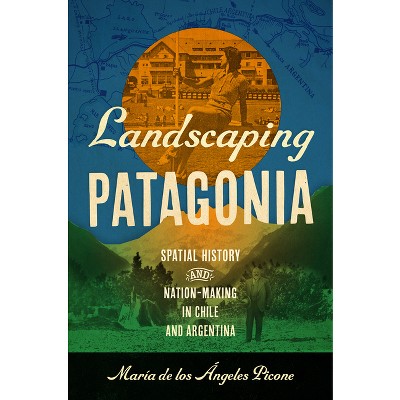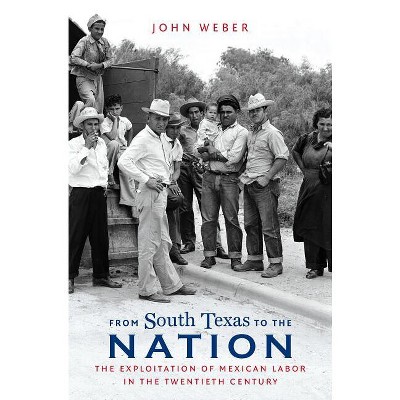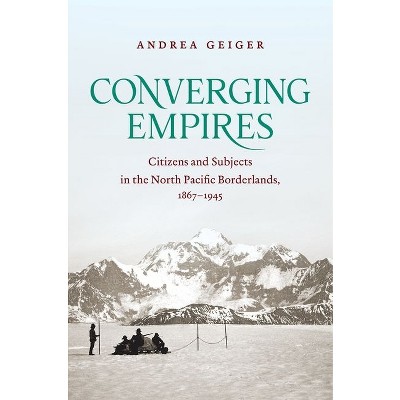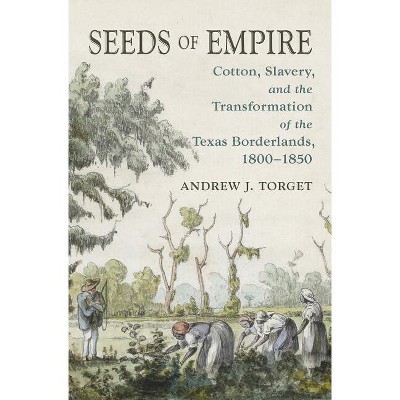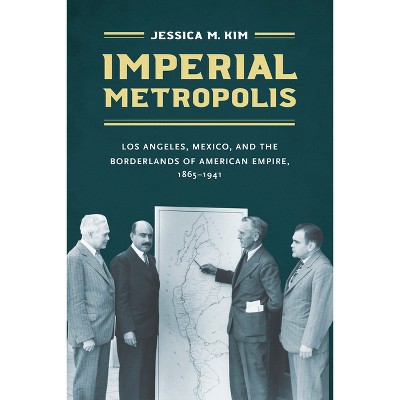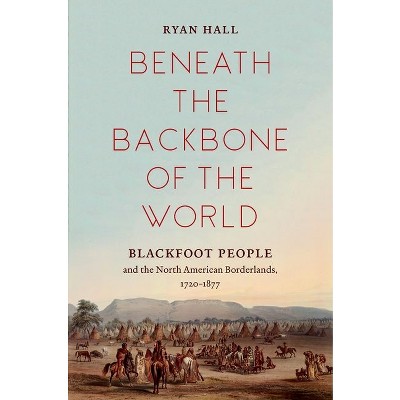Sponsored

Remembering Conquest - (The David J. Weber the New Borderlands History) by Omar Valerio-Jiménez
In Stock
Sponsored
About this item
Highlights
- This book analyzes the ways collective memories of the US-Mexico War have shaped Mexican Americans' civil rights struggles over several generations.
- About the Author: Omar Valerio-Jiménez is associate professor of history at the University of Texas at San Antonio.
- 368 Pages
- History, Latin America
- Series Name: The David J. Weber the New Borderlands History
Description
About the Book
"This book analyzes the ways collective memories of the US-Mexico War have shaped Mexican Americans' civil rights struggles over several generations. As the first Latinx people incorporated into the nation, Mexican Americans were offered US citizenship by the Treaty of Guadalupe Hidalgo, which ended the war. Because the 1790 Naturalization Act declared whites solely eligible for citizenship, the treaty pronounced Mexican Americans to be legally white. While their incorporation as citizens appeared as progress towards racial justice and the electorate's diversification, their second-class citizenship demonstrated a retrenchment in racial progress. Over several generations, civil rights activists summoned conquest memories to link Mexican Americans' poverty, electoral disenfranchisement, low educational attainment, and health disparities to structural and institutional inequalities resulting from racial retrenchments. Activists also recalled the treaty's citizenship guarantees to push for property rights, protection from vigilante attacks, and educational reform. Omar Valerio-Jimâenez addresses the politics of memory by exploring how succeeding generations reinforced or modified earlier memories of conquest according to their contemporary social and political contexts. The book also examines collective memories in the US and Mexico to illustrate transnational influences on Mexican Americans and to demonstrate how community and national memories can be used strategically to advance political agendas"--Book Synopsis
This book analyzes the ways collective memories of the US-Mexico War have shaped Mexican Americans' civil rights struggles over several generations. As the first Latinx people incorporated into the nation, Mexican Americans were offered US citizenship by the Treaty of Guadalupe Hidalgo, which ended the war. Because the 1790 Naturalization Act declared whites solely eligible for citizenship, the treaty pronounced Mexican Americans to be legally white. While their incorporation as citizens appeared as progress towards racial justice and the electorate's diversification, their second-class citizenship demonstrated a retrenchment in racial progress. Over several generations, civil rights activists summoned conquest memories to link Mexican Americans' poverty, electoral disenfranchisement, low educational attainment, and health disparities to structural and institutional inequalities resulting from racial retrenchments. Activists also recalled the treaty's citizenship guarantees to push for property rights, protection from vigilante attacks, and educational reform.
Omar Valerio-Jiménez addresses the politics of memory by exploring how succeeding generations reinforced or modified earlier memories of conquest according to their contemporary social and political contexts. The book also examines collective memories in the US and Mexico to illustrate transnational influences on Mexican Americans and to demonstrate how community and national memories can be used strategically to advance political agendas.
Review Quotes
"Remembering Conquest offers a remarkably comprehensive cultural and intellectual history on the politics of memory as it pertains to the US-Mexico War. . . . [The book] covers significant historical ground with sharp and careful attention to the politics of memory . . . as well as memory's role in struggling for a more just world. . . . [C]ritical."--American Historical Review
"Remembering Conquest fills in the wide gap in historical knowledge about the Mexican American experience and its role in civil rights history. For the journalism historian, the book offers an introduction to many early Spanish-languages newspapers, journalists, and editors whose stories have long been largely overlooked in the canon of American journalism history."--American Journalism
"Remembering Conquest is a timely contribution to the growing body of Chicanx and Latinx intellectual history. . . . To this point, no other work exists with such a focused examination of how ethnic Mexicans' memories of the United States/Mexico War and the Treaty of Guadalupe of Hidalgo shaped the project of civil rights."--Journal of Texas History
"Remembering Conquest is an exciting invitation to rethink the complex, sometimes contradictory relationship between history and memory, and to reflect on the ways in which how we remember the past conditions the present and shapes how we imagine and build the future."--Hispanic American Historical Review
"The book's six chapters describe how Mexican Americans created their own social, political, and cultural scripts to condemn Anglo American racism between the mid-nineteenth century and the late twentieth century."--Pacific Historical Review
"Valerio-Jiménez develops an important intellectual and cultural analysis of Mexican American life and war memory following the 1848 Treaty of Guadalupe Hidalgo. . . . [His] use of historical memory to understand ethnic Mexican oppression, mobilization, and identity-making allows scholars to bridge connections between historical eras usually understood as separate entities and asserts agency to historical actors, resulting in a crucial addition to the historiography of the U.S. Southwest."--Western Historical Quarterly
"Valerio-Jiménez has offered us an exceptionally well-researched investigation into the ways Mexican Americans used the memory of conquest and the Treaty of Guadalupe Hidalgo to push for civil rights in the US Southwest. His work is an important reminder of the impact of legal agreements and their capacity to shape communities, identities, and collective memories across generations."--American Journal of Legal History
"Valerio-Jiménez has tackled a foundational subject in Chicanx Studies for which no book existed. Expanding on collective memories, this book will prove an enduring foundation for the study of United States and Texas imperialism."--Southwestern Historical Quarterly
"Valerio-Jiménez's intervention is a timely reminder of the enduring legacies of conflict stemming from war memories."--Public Books
"Valerio-Jiménez's research not only analyzes various types of archival texts, but also draws on scholarship from multiple disciplines, including sociology, literary studies, political science and legal scholarship. . . . [A] rich study that presents a valuable resource to scholars in a variety of fields committed to the advancement of counter-narratives and collective memories that challenge (national) public memories."--Latino Studies
About the Author
Omar Valerio-Jiménez is associate professor of history at the University of Texas at San Antonio.





